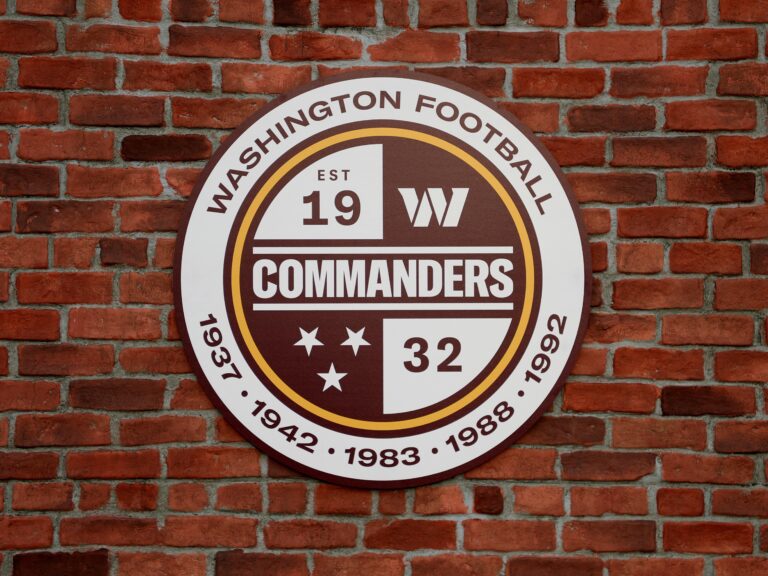Washington Commanders: Navigating Tradition, Change, and Cultural Sensitivity in Team Identity
Origins and Motivations Behind the Washington CommandersŌĆÖ Rebranding
In response to heightened awareness of racial equity and cultural respect, the Washington NFL franchise undertook a landmark rebranding initiative beginning in 2020. This decision involved retiring their former team name, which had long been criticized for perpetuating stereotypes offensive to Native American communities. The change was emblematic of a broader societal shift toward inclusivity and cultural sensitivity within professional sports.
Initially, the team adopted the interim designation ŌĆ£Washington Football TeamŌĆØ while engaging in a thorough process to select a new permanent identity. Several critical factors influenced this transformation:
- Pressure from corporate sponsors and investors intent on distancing themselves from controversial branding
- Persistent advocacy from Indigenous groups demanding respectful and accurate representation
- Internal evaluations focused on the cultural implications and public perception of the franchise
Key milestones in this evolution include:
| Year | Event | Significance |
|---|---|---|
| 2013 | Heightened activism and public campaigns | Elevated national discourse on team name controversy |
| 2020 | Official retirement of the previous team name | Marked a turning point in franchise branding |
| 2022 | Launch of the ŌĆ£Washington CommandersŌĆØ identity | Signaled a new chapter with a refreshed brand |
Reactions from Fans, Businesses, and Political Leaders
The unveiling of the Washington CommandersŌĆÖ new name ignited a spectrum of responses across various communities. Many supporters and social advocates praised the change as a necessary step toward greater cultural respect and inclusivity. Conversely, a segment of the fanbase expressed nostalgia and resistance, emphasizing the importance of tradition and historical continuity. This division was evident in social media debates and fan forums, where discussions about identity and progress unfolded vigorously.
Local enterprises connected to the team faced the challenge of rapidly adjusting their branding and marketing efforts to align with the new identity, illustrating the ripple effect beyond the sports arena.
Political commentary further intensified the discourse. Former President Donald Trump publicly urged the franchise to reinstate its former name, framing the rebranding as an overreach of political correctness that undermines heritage. Meanwhile, several congressional members advocated for the change, highlighting the significance of evolving symbols that honor diversity and promote inclusiveness in American sports culture.
| Stakeholder | Response | Core Message |
|---|---|---|
| Fans | Split Opinions | Balancing Heritage and Progress |
| Local Businesses | Responsive | Revised Marketing Strategies |
| Former President Trump | Opposition | Restore Original Name |
| Congressional Leaders | Supportive | Championing Inclusive Representation |
Examining Former President TrumpŌĆÖs Case for Reinstating the Previous Name
Donald TrumpŌĆÖs advocacy for reverting to the teamŌĆÖs original name is grounded in his view that the former moniker symbolizes a proud American legacy and embodies the teamŌĆÖs historical identity. He contends that the rebranding was an unnecessary concession to political correctness, which he believes diminishes the franchiseŌĆÖs heritage and alienates a loyal fanbase.
TrumpŌĆÖs public arguments emphasize several themes:
- Legacy and Tradition: The original name is seen as a vital part of the teamŌĆÖs cultural fabric and community connection.
- Financial Considerations: He warns that the name change could negatively affect merchandise sales and local economies reliant on the established brand.
- Political Dynamics: Trump criticizes what he describes as pressure from activist groups prioritizing cultural sensitivity over fan interests.
- Fan Engagement: He highlights feedback from supporters who favor the original name, urging team leadership to heed their voices.
| Argument | Supporting Points |
|---|---|
| Preserving Tradition | Maintaining historical continuity and legacy |
| Economic Impact | Protecting revenue streams from merchandise and local businesses |
| Political Resistance | Opposing changes driven by political correctness |
| Fan Loyalty | Prioritizing the preferences of long-standing supporters |
Branding, Community Impact, and the Future of the Franchise
The rebranding to the Washington Commanders carries significant implications for the teamŌĆÖs public image and its relationship with diverse communities. This shift offers a chance to modernize the franchiseŌĆÖs identity, aligning it with contemporary values of inclusivity and respect. Such a transformation can broaden the fanbase and attract partnerships with socially conscious corporations.
However, this evolution also presents challenges, particularly in maintaining the loyalty of long-time fans who feel a strong attachment to the teamŌĆÖs historical identity. Balancing these dynamics is crucial for the franchiseŌĆÖs ongoing success.
Notable impacts include:
- Community Outreach: Enhanced engagement initiatives targeting a wider demographic spectrum
- Merchandising Trends: Fluctuations in sales as fans respond variably to the new branding
- Media Focus: Heightened attention on social justice themes within sports culture
- Financial Outcomes: Potential for both growth and setbacks depending on public reception
| Aspect | Opportunities | Challenges |
|---|---|---|
| Fan Engagement | Broader inclusivity and diversity | Risk of alienating traditional supporters |
| Brand Identity | Contemporary, socially aware image | Potential loss of historical brand recognition |
| Sponsorship | Attraction of progressive corporate partners | Possible withdrawal of traditional sponsors |
Final Thoughts: The Washington Commanders and the Intersection of Sports and Social Change
The Washington CommandersŌĆÖ name change exemplifies the evolving landscape of professional sports, where cultural awareness and social responsibility increasingly influence organizational decisions. Despite ongoing debates and political pressures, including calls from figures like former President Trump to revert to the original name, the franchise is steadfast in its commitment to fostering an inclusive and respectful identity.
This transition highlights the powerful role that sports teams play as cultural symbols and the importance of adapting to societal progress while honoring community values. As the dialogue continues, the CommandersŌĆÖ journey serves as a case study in balancing heritage with the imperative for change in modern America.







